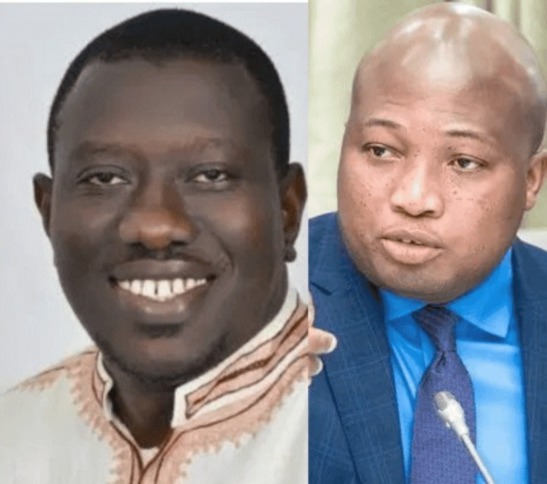adverts
Ablakwa Questions Nana Attobrah Quaicoe Over State Land Allegations
Samuel Okudzeto Ablakwa, Chairman of the Operation Recover All Loot (ORAL) Committee, has raised serious questions over former NIB Director Nana Attobrah Quaicoe’s denial of involvement in a controversial state land deal.
In a scathing Facebook post, Ablakwa demanded clarity from Quaicoe, who has categorically denied allegations that he unlawfully acquired prime Cantonments state land at an extremely undervalued price.
Ablakwa outlined four critical questions for Quaicoe to address:
adverts
- Is he denying that he purchased the Cantonments land from President Akufo-Addo for a mere GHS160,157 (less than $11,000)?
- Is he denying that the real market value of the land is over $700,000 (GHS10.5 million)?
- Is he denying that his government failed to comply with the Land Use and Spatial Planning Act, 2016 (Act 925) by not seeking parliamentary approval for rezoning?
- Is he denying that an intermediary contacted the ORAL Committee about this matter?
Ablakwa’s post, which included documentary evidence from the Lands Commission, expressed his frustration with Quaicoe’s denials. “I honestly don’t understand what his denials are about,” he wrote, signalling a continuing public dispute.
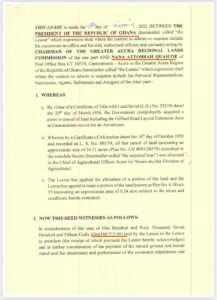
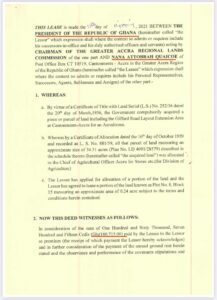
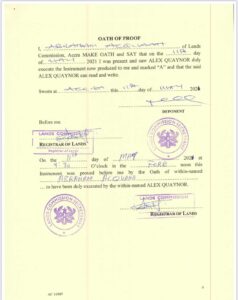
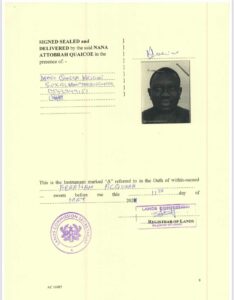
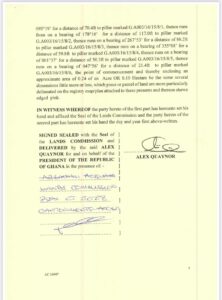
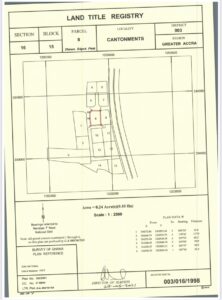
In response to the allegations, Quaicoe issued a forceful statement through his legal counsel, KUDZE, KUDZE@LAW, on January 11, 2025.
The statement dismissed the accusations as “contrived, false, and without any basis.” It emphasised that Quaicoe had not engaged with Ablakwa or any ORAL Committee member regarding the land deal and reiterated that he does not own or possess any unlawfully acquired state property.
The legal team also condemned remarks made by Martin Kpebu, a member of the ORAL Committee, who suggested that Quaicoe had tried to reach out to Ablakwa concerning the land.
The statement demanded a full retraction from Kpebu and warned of legal action if he failed to comply.
The ORAL Committee, set up in December 2024 by former President John Dramani Mahama, is tasked with recovering misappropriated state assets.
Ablakwa has been vocal in his calls for stricter laws to prevent political appointees from purchasing state property, advocating for the passage of his private member’s bill to bar such transactions.
“This is why I get even more convinced every passing day that my private member’s bill seeking to prohibit political appointees and politically exposed persons from buying state assets must be passed without further delay,” Ablakwa emphasised.
He expressed his belief that President Mahama’s leadership gives hope that the era of state capture is finally coming to an end.
The allegations have ignited a public debate over the transparency of state asset recoveries and the need for accountability in government dealings. Critics argue that the allegations against Quaicoe underscore the challenges faced by the ORAL Committee in its mission.
While Quaicoe has reiterated his commitment to integrity and the rule of law, the case continues to fuel controversy. As the ORAL Committee continues its operations, the public remains divided on the credibility of the investigation and the need for more rigorous evidence-based scrutiny.
The ongoing dispute over the Cantonments land deal is just one example of the growing tension between political figures, public servants, and the ORAL Committee in the fight against corruption and state asset mismanagement.


